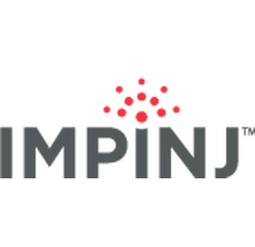Case Studies.
Add Case Study
Our Case Study database tracks 8,303 case studies in the global enterprise technology ecosystem.
Filters allow you to explore case studies quickly and efficiently.
Filters
-
(5)
- (5)
-
(5)
- (5)
- (1)
-
(5)
- (5)
-
(1)
- (1)
- (1)
- (1)
- (1)
- (3)
- (2)
- (3)
- (1)
- (5)
Selected Filters

|
Retailer Uses RFID Scanner to Improve Efficiency
Patrizia Pepe wished to improve the logistics of their warehouse: accepting incoming goods from their production sites, movement of items throughout
the warehouse, and packaging of goods for distribution to the retail locations. They initially tried to use barcodes for this function. Because barcodes must be individually scanned within a line-of-sight, the acceptance of goods coming into the warehouse was too time consuming. Working with the University of Florence, Patrizia Pepe instituted a five-month pilot project beginning in August of 2009 to test the validity of an RFID solution. The pilot involved tagging of about 60,000 items for the second seasonal collection, and convinced the company to move forward with tagging all items.
|
|

|
Retail Uses RFID to Enable Cold Chain Monitoring
Like most grocery retailers, Hy-Vee is faced with the challenge of providing the highest quality products to its shoppers. Shoppers want the longest possible shelf life from perishable products and expect a consistent product experience each time they shop. Controlling the quality of products sold leads to shopper loyalty, which is of paramount importance to the success of Hy-Vee. Before products arrive in stores, Hy-Vee's distribution centers (DCs) handle items including dairy products, fresh meats, seafood, deli items, produce and frozen goods, all of which have different temperature needs and sensitivities. During transit from suppliers to DCs, Hy-Vee has limited visibility and temperature management abilities due to large amount of supplier managed transportation. For instance, during a week-long transit, a supplier's carrier equipment may malfunction, causing an item to thaw and then refreeze once repairs are made. Hy-Vee sought help from TempTRIP, an RFID solution provider that focuses on shipping, storage, receiving, and temperature control. TempTRIP's EPC RFID tags use Impinj chips to monitor and report temperature readings throughout the shipping and receiving process. The tags can also be re-configured and re-used, a unique feature within the current market of temperature monitoring devices.
|
|

|
Asset Tracking
Each day, PAK picked up soiled linen which had been hand counted by its customers. On the following day, they were expected to return the exact same amount of linens. However, manual counts conducted by PAK’s customers were always inaccurate (a problem inherent to soiled counting) and not being able to return exact amounts was very problematic. PAK sought an RFID-enabled textile-tracking system to enable total linen monitoring throughout the whole linen cycle, while increasing facility and operation efficiency, preventing loss and ensuring customers receive the correct textiles. PAK chose to work with USTEK RFID Solutions, a sister company that designs and manufactures integrated RFID terminals for industrial laundry markets worldwide. It was challenging to find RFID products that operated well in the PAK facility, as the environment was damp and full of metal trolleys. After testing many different readers, chips and antennas in the facility, USTEK and PAK chose to use Impinj products due to their superior performance.
|
|

|
Increase in Laundry Facility Output with Item Intelligence
Established in 1854, Berendsen is a European textile service business with 127 locations in 15 countries throughout Europe. Berendsen provides service solutions to lease, source, clean and maintain textiles used in various settings, including healthcare, washroom, hotel, restaurant, and cleanroom. Since 1996, Berendsen has focused on providing services for the healthcare and industrial areas, becoming a leader in their field. Supplying hospitals, retirement homes and care facilities with linens represents a significant part of the daily business for one Berendsen facility in Germany. This facility receives tons of used linens each day. The contaminated linens, shipped in laundry bags and roll cages, are weighed rather than counted to protect workers from the risk of infection. Once the linens are washed, they are manually sorted, giving Berendsen insight into what they’ve received and how much manpower they will need to process the laundry. Berendsen needed a solution that allowed for the bulk reading of contaminated linens, enabling them to better plan the manpower needed to finish each job. They also wanted a solution that would scale in the future to meet other project needs. In the past, RAIN RFID solutions had been implemented in other Berendsen facilities to give better insights into laundry care. As bulk reading was the number one priority of the new system, a RAIN RFID solution, powered by Impinj technology, was implemented to analyze the bulk shipments arriving at the facility.
|
|

|
Logistics Improves Efficiency with RFID Tags
Qantas uses RFID tags to improve customer service and speed up check-in.
|
|

